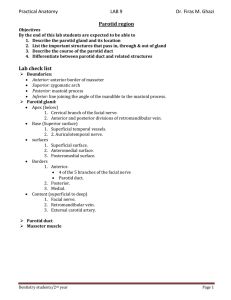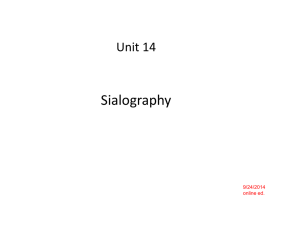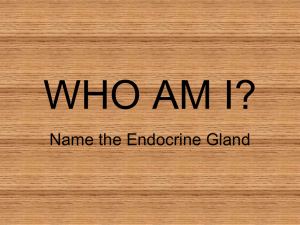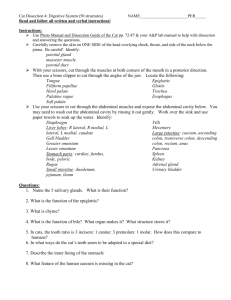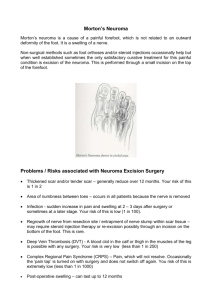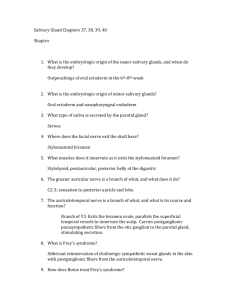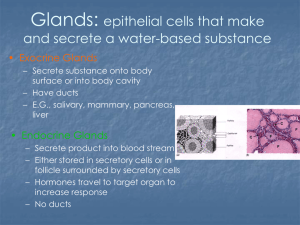Surgery - USF Health Otolaryngology Parotidectomy
advertisement
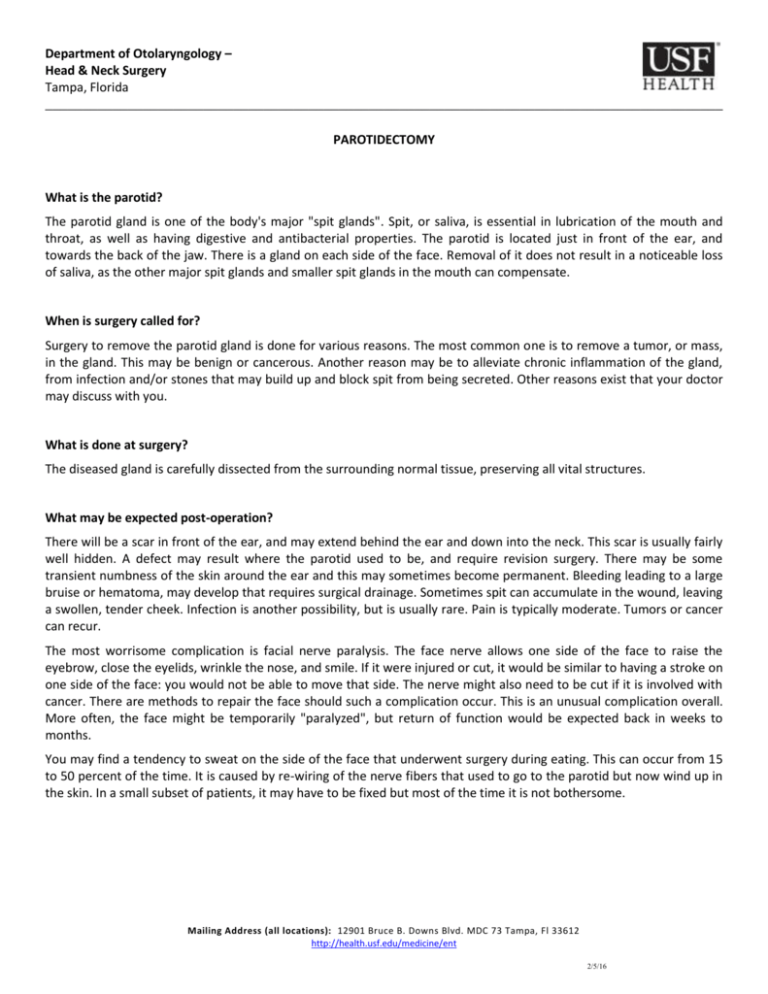
Department of Otolaryngology – Head & Neck Surgery Tampa, Florida __________________________________________________________________________________________ PAROTIDECTOMY What is the parotid? The parotid gland is one of the body's major "spit glands". Spit, or saliva, is essential in lubrication of the mouth and throat, as well as having digestive and antibacterial properties. The parotid is located just in front of the ear, and towards the back of the jaw. There is a gland on each side of the face. Removal of it does not result in a noticeable loss of saliva, as the other major spit glands and smaller spit glands in the mouth can compensate. When is surgery called for? Surgery to remove the parotid gland is done for various reasons. The most common one is to remove a tumor, or mass, in the gland. This may be benign or cancerous. Another reason may be to alleviate chronic inflammation of the gland, from infection and/or stones that may build up and block spit from being secreted. Other reasons exist that your doctor may discuss with you. What is done at surgery? The diseased gland is carefully dissected from the surrounding normal tissue, preserving all vital structures. What may be expected post-operation? There will be a scar in front of the ear, and may extend behind the ear and down into the neck. This scar is usually fairly well hidden. A defect may result where the parotid used to be, and require revision surgery. There may be some transient numbness of the skin around the ear and this may sometimes become permanent. Bleeding leading to a large bruise or hematoma, may develop that requires surgical drainage. Sometimes spit can accumulate in the wound, leaving a swollen, tender cheek. Infection is another possibility, but is usually rare. Pain is typically moderate. Tumors or cancer can recur. The most worrisome complication is facial nerve paralysis. The face nerve allows one side of the face to raise the eyebrow, close the eyelids, wrinkle the nose, and smile. If it were injured or cut, it would be similar to having a stroke on one side of the face: you would not be able to move that side. The nerve might also need to be cut if it is involved with cancer. There are methods to repair the face should such a complication occur. This is an unusual complication overall. More often, the face might be temporarily "paralyzed", but return of function would be expected back in weeks to months. You may find a tendency to sweat on the side of the face that underwent surgery during eating. This can occur from 15 to 50 percent of the time. It is caused by re-wiring of the nerve fibers that used to go to the parotid but now wind up in the skin. In a small subset of patients, it may have to be fixed but most of the time it is not bothersome. Mailing Address (all locations): 12901 Bruce B. Downs Blvd. MDC 73 Tampa, Fl 33612 http://health.usf.edu/medicine/ent 2/5/16
